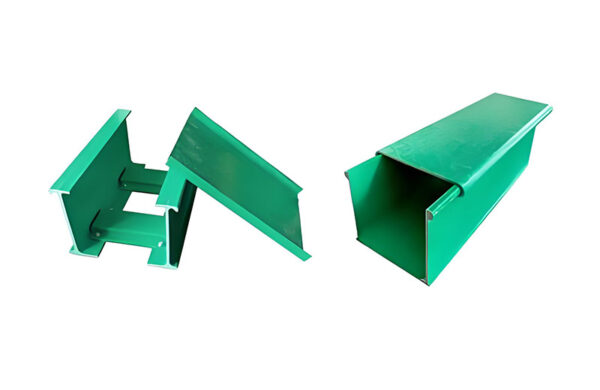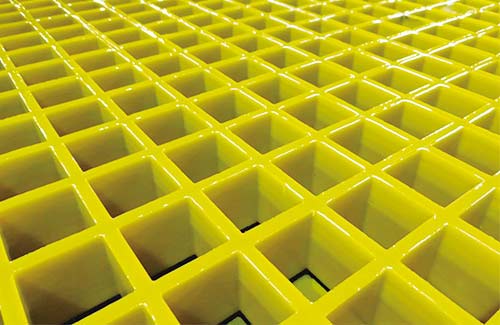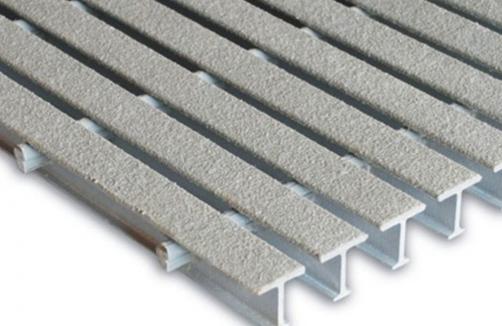Swimming pools are not just recreational facilities; they are complex environments that demand high standards of safety, durability, and aesthetics. The pool deck, in particular, is a critical area that must withstand constant exposure to water, chemicals, and foot traffic while providing a safe and comfortable surface for users. Traditional materials like concrete, wood, and metal have long been used for pool decks, but they often fall short in meeting the demanding requirements of modern swimming pool environments. In recent years, Fiber Reinforced Polymer (FRP) grating has emerged as a superior alternative, offering unparalleled benefits that make it the ideal choice for swimming pool decks.
The Challenges of Traditional Pool Deck Materials
Concrete Decks
Concrete has been a popular choice for pool decks due to its strength and durability. However, it also comes with several drawbacks. Concrete is porous, which means it absorbs water and can become slippery when wet. This poses a significant safety risk, especially in a pool environment where users are often barefoot. Additionally, concrete is prone to cracking over time, which can lead to tripping hazards and costly repairs. The maintenance of concrete decks also requires regular sealing and resurfacing to prevent water penetration and algae growth.
Wood Decks
Wooden decks offer a more aesthetically pleasing option, providing a natural and warm appearance. However, wood is highly susceptible to rot, decay, and warping when exposed to constant moisture. To maintain its integrity, wooden decks require regular treatment with sealants and preservatives, which can be both time-consuming and costly. Moreover, wood can become slippery when wet, posing a safety risk similar to concrete decks.
Metal Decks
Metal decks, particularly those made from steel or aluminum, offer strength and durability. However, they are prone to rust and corrosion, especially in the presence of chlorine and saltwater. This can lead to structural weaknesses and the need for frequent replacements. Additionally, metal decks can become extremely hot under direct sunlight, making them uncomfortable for barefoot users.
The Advantages of FRP Grating for Swimming Pool Decks
Superior Durability
FRP grating is engineered to withstand the harshest environments, making it an ideal material for swimming pool decks. Unlike traditional materials, FRP is highly resistant to corrosion, rust, and decay. This means that FRP grating can maintain its structural integrity over long periods, even when exposed to constant moisture and chemicals. The non-porous nature of FRP prevents water absorption, reducing the risk of slipperiness and algae growth. This durability not only ensures a long-lasting deck but also reduces maintenance costs and downtime associated with repairs.
Enhanced Safety Features
Safety is a paramount concern in swimming pool environments, and FRP grating excels in this area. One of the most significant advantages of FRP grating is its slip-resistant surface. The grating can be designed with various textures and anti-slip coatings that provide excellent traction, even when wet. This significantly reduces the risk of slips and falls, which are common hazards in pool areas. Additionally, FRP grating can be manufactured with rounded edges and smooth surfaces, minimizing the risk of cuts and abrasions. The material is also non-conductive, reducing the risk of electrical hazards in areas where lighting and electrical equipment are present.
Low Maintenance Requirements
One of the most compelling reasons to choose FRP grating for swimming pool decks is its low maintenance requirements. Traditional materials like concrete and wood often require regular sealing, painting, and resurfacing to maintain their appearance and functionality. In contrast, FRP grating requires minimal maintenance. It is resistant to UV degradation, meaning it will not fade or deteriorate over time. The non-porous surface also makes it easy to clean, requiring only occasional sweeping and rinsing with water. This low maintenance characteristic not only saves time and money but also ensures that the pool deck remains in optimal condition throughout its service life.
Aesthetic Flexibility
Aesthetics play a crucial role in the overall experience of using a swimming pool. FRP grating offers a wide range of design options, allowing pool owners and designers to create visually appealing decks. The grating is available in various colors, patterns, and finishes, enabling it to blend seamlessly with the surrounding environment or match the desired aesthetic theme. Whether it is a modern, sleek design or a more traditional, rustic look, FRP grating can be customized to meet specific requirements. This versatility makes it an ideal choice for both commercial and residential swimming pool applications.
Environmental Resistance
Swimming pools are often exposed to a variety of environmental factors, including UV radiation, chlorine, and saltwater. These elements can be highly corrosive and damaging to traditional materials. FRP grating, however, is specifically designed to withstand such harsh conditions. The polymer matrix and reinforcing fibers used in FRP construction provide excellent resistance to UV degradation, chemical attack, and moisture absorption. This means that FRP grating will not deteriorate or lose its structural integrity over time, ensuring a long-lasting and reliable pool deck solution.
Customization and Flexibility
FRP grating can be customized to meet the specific needs of different swimming pool projects. It is available in various sizes, shapes, and load-bearing capacities, allowing it to be tailored to fit the unique requirements of each pool deck. Whether it is a large commercial pool or a small residential spa, FRP grating can be designed to provide the perfect solution. The material is also lightweight, making it easy to install and transport. This flexibility ensures that FRP grating can be seamlessly integrated into existing pool structures or incorporated into new designs.
Cost-Effectiveness
While the initial cost of FRP grating may be higher than some traditional materials, its long-term cost-effectiveness makes it a wise investment. The durability and low maintenance requirements of FRP grating mean that it will not need frequent repairs or replacements, reducing overall lifecycle costs. Additionally, the material’s resistance to corrosion and UV degradation ensures that it will maintain its appearance and functionality over time, providing a high return on investment. When considering the total cost of ownership, FRP grating emerges as a cost-effective solution for swimming pool decks.
Technical Considerations for FRP Grating Installation
Design and Customization
When selecting FRP grating for a swimming pool deck, it is essential to consider the specific requirements of the project. The grating can be customized in terms of size, shape, load-bearing capacity, and surface texture to meet the unique needs of each pool. For example, high-traffic areas may require a more robust anti-slip surface, while less trafficked areas can have a smoother finish. The flexibility in design ensures that FRP grating can be seamlessly integrated into existing pool structures or incorporated into new designs.
Installation Process
The installation of FRP grating is relatively straightforward compared to traditional materials. Its lightweight nature means that it can be easily transported and installed without the need for heavy lifting equipment. Proper anchoring and support are essential to ensure the stability and longevity of the grating. Skilled installation teams can complete the process quickly, minimizing disruption to pool operations. It is also important to ensure that the underlying surface is clean and level to provide a stable base for the grating.
Regulatory Compliance
In the swimming pool industry, compliance with safety and health regulations is crucial. FRP grating meets or exceeds industry standards for slip resistance, load-bearing capacity, and durability. It is also non-conductive, reducing the risk of electrical hazards in areas where lighting and electrical equipment are present. Ensuring that FRP grating complies with relevant regulations is essential for its successful implementation in swimming pool decks.







